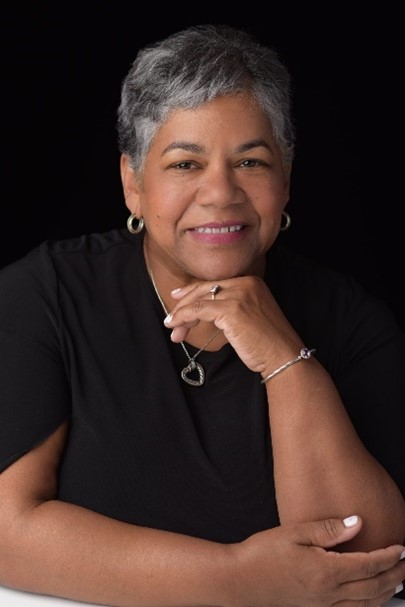Each February, Next Street celebrates impact and contributions of Black small business owners. In the past, we’ve reflected on the success and challenges facing Black-owned businesses and highlighted some of our favorite Black-owned businesses to support. This February, we want to highlight the perspective of leaders who center their work around supporting, advocating, and uplifting Black-owned businesses, as well as all underrepresented communities. Read on to hear a few different perspectives on the challenges facing Black entrepreneurs and how we can continue to support them.

Tricia M. Taitt, M.B.A. CEO of FinCore and best-selling author of “Dancing with Numbers”
What are the most pressing issues facing Black small businesses that you believe get overlooked?
The issues that often get overlooked for me are: (1) lack of financial education, (2) lack of access to networks that could potentially advance their businesses, and (3) black business owners not dealing with unresolved trauma around money or destructive money beliefs. I specifically tackle lack of financial education in my book “Dancing with Numbers” with the excerpt below offering an anecdote on why women business owners experience constrained performance, and I believe the same affects Black business owners.
Research shows that many women-owned businesses show “constrained performance” (not to be confused with underperformance) due to factors like type of business chosen, access to capital, limitations on time to devote to a business due to family caregiving responsibilities, and fewer assets to invest (Marlow, S. and McAdam, M., 2013). But the US Department of Commerce’s October 2010 report “Women-Owned Businesses in the 21st Century” suggests that women business owners have some part to play in stagnant revenue growth. “Female business owners, and women in general, are more risk- averse than men, especially when taking on financial risk. Such financial risk aversion could influence the type of business chosen, the amount and type of start-up and growth capital, and the desire to expand.” I believe the reason women entrepreneurs experience “constrained performance” is that they get caught in a never-ending cycle. Without the right financial preparation, training, and support they experience stagnant revenue and profit growth. FinCore’s mission is to move 10 percent of these women from six figures of revenue to seven figures by helping them gain access to capital. Data shows that women entrepreneurs’ revenue and employment growth accelerate once they hit the one-million-dollar revenue milestone—ultimately positively impacting the US economy.
Visit Tricia at FinCore | Buy her book Dancing with Numbers | Connect with Tricia on LinkedIn

Anne Richie, Managing Director, The Mezzanine Fund
What are one or two of the most pressing issues facing Black small businesses that you believe get overlooked?
Two pressing issues facing Black small businesses are the high failure rate and the high concentration in low growth, low margin businesses. These issues are interrelated. While most new businesses are started by Black women, most do not last more than 18 months. Due to historical lack of access to capital and opportunities, Black businesses were relegated to industries that have low barriers to entry, low capital requirements, low technology, and low margins. Black people built businesses to escape poor employment opportunities, utilizing their existing skills and their own capital. This has contributed to high failure rates and limited growth opportunities for our businesses. We need to focus on transitioning our skills to high margin industries where the business opportunities are more sustainable and more likely to result in wealth creation. Strategic and intentional efforts to increase profitability and sustainability as opposed to feeding the same small businesses that have limited opportunities and short lifecycles.
Race-conscious programs are being targeted after the Fearless Fund decision. How are you thinking about ensuring Black small businesses have access to the right capital and resources to succeed?
There is good data on the outperformance of women and people of color in business. We need to add to this data by steering research in this direction as opposed to more reports on the poor condition of the Black business landscape/ecosystem. Investment in outperformance is less likely to be challenged and we need Black C-suite and procurement professionals to use their seats to identify and support outperformance regardless of the status of their DEI and supplier diversity initiatives.
Connect with Anne on LinkedIn

Charisse Conanan Johnson, Co-CEO, Next Street
What are one or two of the most pressing issues facing Black small businesses that you believe get overlooked?
I believe there are numerous issues that get overlooked when it comes to Black small businesses and a critical one for me is around generational wealth building. According to a study by the Association for Enterprise Opportunity, Black households with entrepreneurs have 12x more wealth than Black families without entrepreneurs. As such, entrepreneurship is not only a key lever to narrow the current wealth gap of Black families to their white counterparts, but also provides opportunity for future generations of Black families to access their own household wealth to start and grow businesses. What’s key here is how do you turn current wealth into something longer term that can be passed on generationally. Related, we need more resources to help Black small businesses successfully plan for the next generation of owners and operators. If Black owned small businesses are going to grow into successful middle-market businesses, succession planning is a key ingredient that gets overlooked. Wealth building must start from a place where Black entrepreneurs and small businesses can first have better and fair access to funding options, strong advisory supports, and a deep understanding of the opportunities and resources available to them.